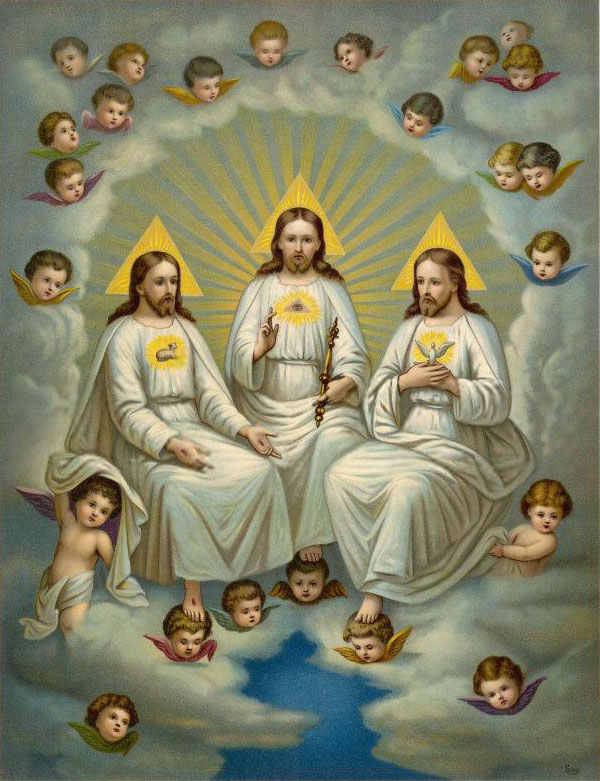For your perusal and reflection here are some of the more prominent triadic formulae texts and some thoughts about how determinant they might or should be in justifying the doctrine of the Trinity.
References: Matthew 3:16-17 Matthew 28:19 Mark 1:10-11 Luke 3:22 John 14:26 John 15:26 Acts 2:33 2 Corinthians 13:14 1 Peter 1:2
May the grace of the Lord Jesus Christ, and the love of God,
and the fellowship of the Holy Spirit be with you all [1].
These passages are often cited as presenting strong support
for Trinitarian views, because they show very close references to the Father,
Son and Holy Spirit, even connectedness in some cases. However, few actually
pause to note that in the key passage of 2 Corinthians 13:14 only one of the
Three mentioned is properly called “God”, and that is very consistent with the
kind of trinitarianism that we have seen developing in the second and third
centuries.
1 Peter 1:2 (salvation) and Matthew 3:16-17, Mark 1:10-11
and Luke 3:22 (Jesus’ baptism) are good verses to prepare for fourth century
views on the doctrine of inseparable operations, but again “triadic” ≠ “Trinitarian”.
Indeed, in the 1 Peter passage, the unique identification of “God” with one of
the three (the Father) is very similar to the 2 Corinthians passage. Overstating
the trinitarian ideas at work here is also illustrated by Larry Hurtado’s New
International Biblical Commentary on Mark, which sails right through the Markan
baptism passage without the slightest reference to any threeness motifs whatsoever[2].
Notice how it is impossible for these passages to be both
truly triadic and truly Trinitarian, if God is the One True Triune God. If God
is the One True Triune God, then we are forced to say things we actually say
ourselves or dream to be in the author’s intentions:
May the grace of the Lord God Jesus Christ, and the love of God the Father, God the Son and God the Holy Spirit, and the fellowship
of God the Holy Spirit be with you
all[3].
It would appear that consistent application of Trinitarian
dogma could even harm the original triadic beauty, and actually dismantle
anything “triadic” about the statement anyway. This suggests, therefore, that
God, in these triadic formulations, is exegetically, and consistently, the
Father (see especially Acts 2:33 for the clearest example).
Continuing on to John’s triadic references, we get to the
heart of the Catholic-verses-Orthodox passages, whereby each focus on different
parts of these verses to argue their case for how the Holy Spirit might proceed.
It is true that for John in these passages in chapters 14 and 15, there are
simple Father, Son and Holy Spirit combinations that would seem suggestive,
although John seeing “Father” and “God” as pretty synonymous terms is fairly
clear by studying the “God sent Jesus” passages: John 6:29, John 8:42, John
16:27, John 16:30, John 17:3b, 1 John 4:9 and 1 John 4:10[4].
The suggestiveness of these triadic expressions seems weak,
except for one. The most suggestive example I can see of the Triadic formulae
is at the end of Matthew, where Jesus commands his disciples to make more disciples,
baptising them in the name of the Father, Son and Holy Spirit. Trinitarians sometimes emphasise the “One Name” here. We do not have time to develop the strength of
this evidence here, I simply wanted to acknowledge it and remember that this
trifold formula does indeed extend back very early into church practice, as we
can see in the Didache.


No comments:
Post a Comment
Thanks very much for your feedback, really appreciate the interaction.